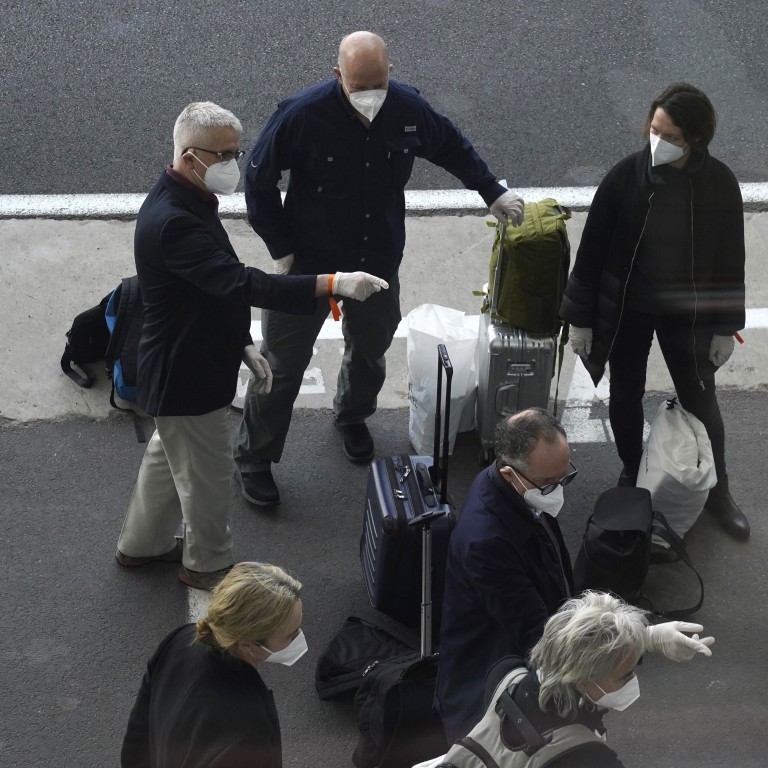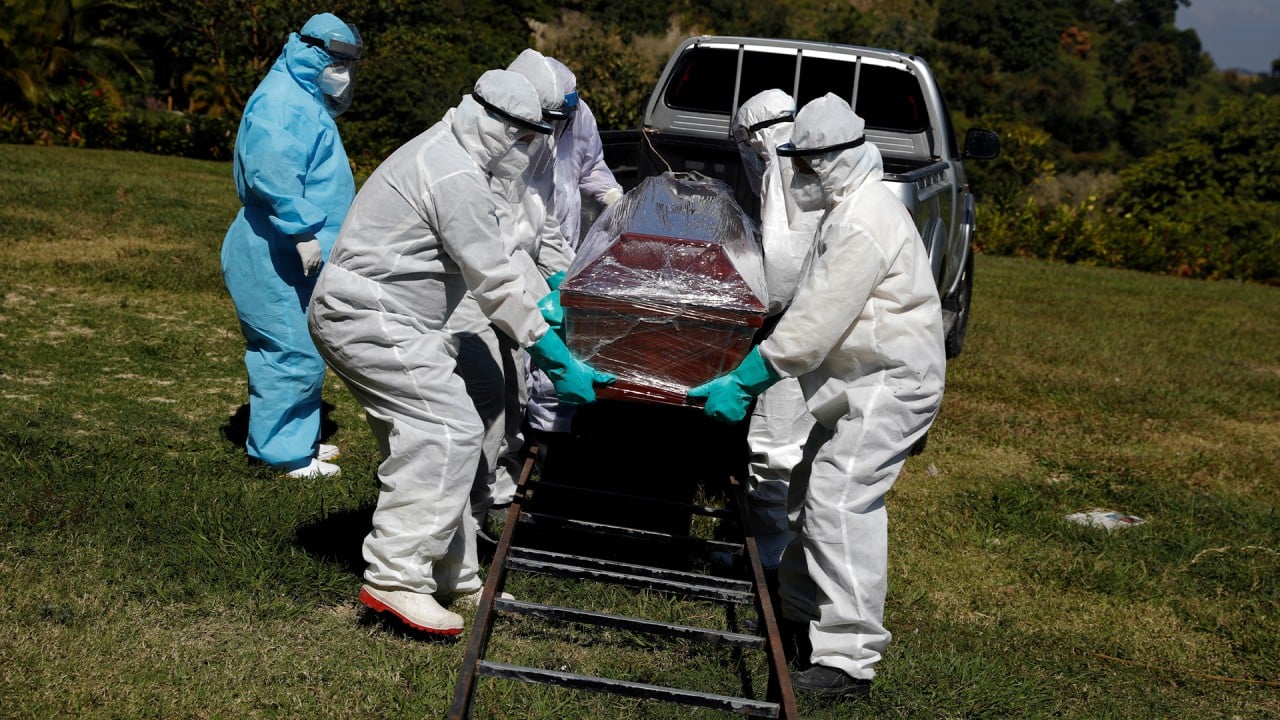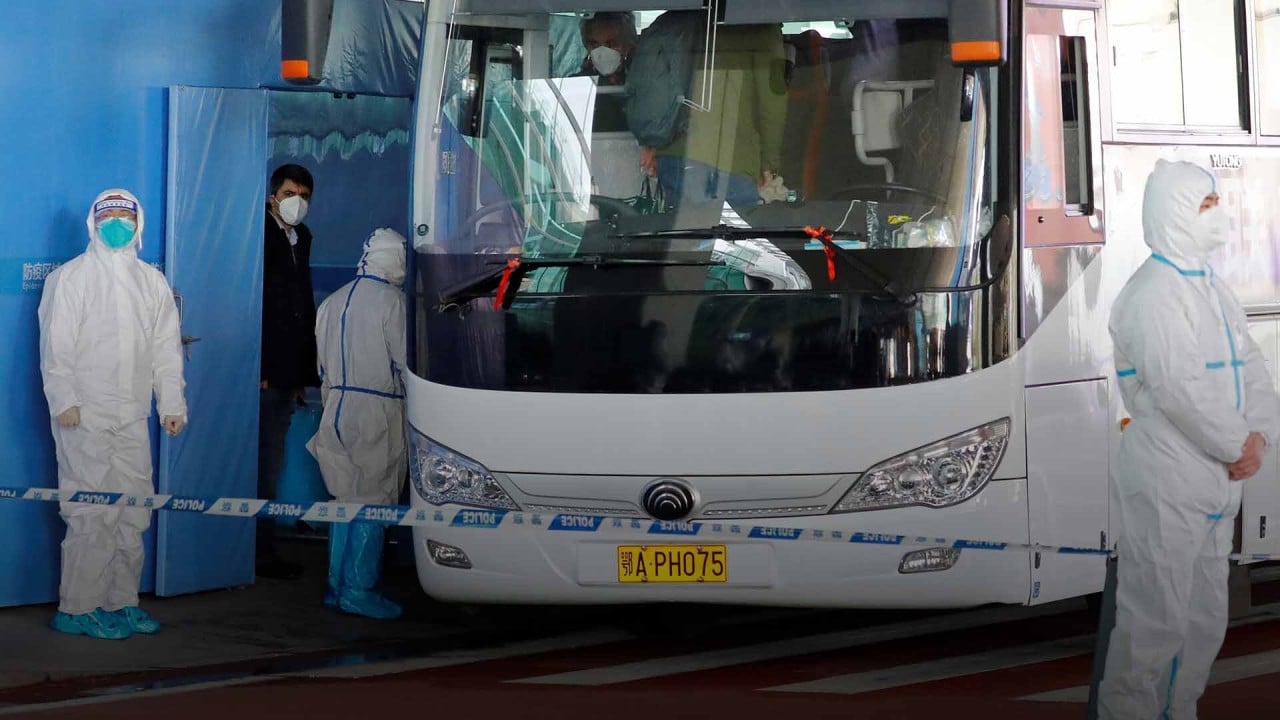
Coronavirus: WHO investigator cleared for China as quarantined team starts work online
- Beijing says one of two experts still in Singapore was negative in a second round of Covid-19 antibody tests but the other scientist was positive
- Team members in Wuhan teleconference with Chinese counterparts
Chinese foreign ministry spokesman Zhao Lijian said on Friday that the second scientist was still positive in the second round of tests.
“China agreed to a second round of IgM antibody testing for the relevant experts to be conducted. The results showed that the British expert tested negative, while the Qatari expert was still positive,” Zhao said.
“We have already agreed to let the British expert come to China. We will continue to communicate with the WHO on the relevant matters as we work hard for both parties to jointly conduct the investigation into the origins of the coronavirus,” he said without specifying the date of arrival.
Coronavirus: global death toll could hit 5 million by March, Chinese researchers say
Singapore’s Ministry of Foreign Affairs said two members of the international mission remained in the country, “pending discussions between the WHO and Beijing on their eligibility to proceed to join the mission”.
China requires passengers flying from Singapore to take a nucleic acid test and an IgM antibody test up to two days before boarding China-bound flights.
The announcement came as the World Health Organization team investigating the origins of the coronavirus began meeting Chinese counterparts virtually, according to the UN agency.
One of the team members, disease ecologist Peter Daszak, tweeted on Friday: “Finally here in Wuhan! Team [is] now undergoing the mandatory 14 days quarantine and being treated very well by our hosts.”
He said work began on the first day with teleconference meetings with the Chinese team.

01:59
Worldwide coronavirus death toll nears 2 million
The role of the team is to “verify data” collected by Chinese scientists and to interview early patients, according to the WHO.
Details of the information to be collected and examined were laid out in a “terms of reference” document drawn up after two WHO experts visited China in July.
The 10 international scientists taking part in the mission include public health experts, animal health specialists and virus hunters from Japan, Qatar, Germany, Vietnam, Russia, Australia, Denmark, the Netherlands, Britain and the United States.
In addition, the 15-person delegation meant to fly to Wuhan from Singapore includes experts from the WHO and the World Organization for Animal Health (OIE). Two scientists from the Food and Agriculture Organization of the United Nations (FAO) will also take part remotely.

01:47
WHO health experts arrive in Covid-19 epicentre Wuhan to investigate origins of coronavirus
The mission is in response to a resolution passed by the WHO’s governing body in May calling for an inquiry into the origins of the coronavirus, which is thought to have come from an animal. The resolution stipulated that experts from both the OIE and FAO should work with the WHO to identify the source of the virus and how it began spreading among humans.
The work list includes going through medical records to find evidence of early cases that might have been missed, testing stored medical samples for traces of infection, and documenting the supply chains and animal species on sale at a Wuhan food market linked to a number of the earliest known cases.

